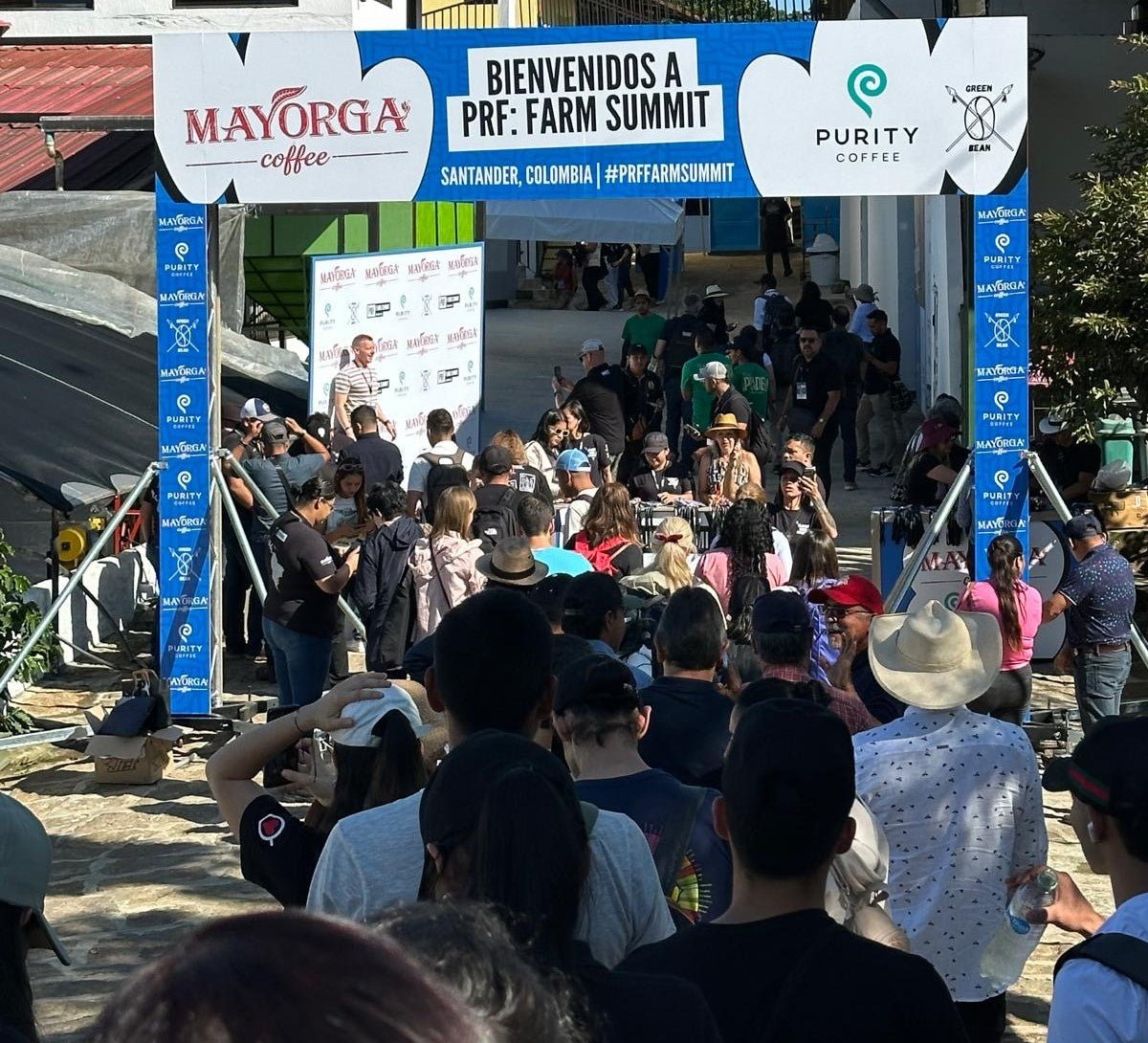
Have you ever experienced a place so impactful that you only fully grasp its beauty and significance after leaving? Reflecting on my recent trip to Colombia, that’s exactly the feeling I have. Colombia is a country I’ve visited multiple times, each trip a unique experience marked by stunning landscapes, vibrant flavors, and the warmth of its people.

This time, though, the trip was more of a whirlwind. I was there for the Producer Roaster Forum, a gathering designed to foster direct connections between specialty coffee producers and roasters. The event had a special focus on regenerative agriculture—a movement that’s more than just a trend; it’s a response to the urgent need for sustainable practices in the coffee industry.
While I was already familiar with regenerative farming through our work at Utopian Coffee, the event offered an in-depth look at the innovative techniques making a difference at the ground level. From biochar’s role in soil improvement to advancements in soil chromatography and quality assessment, the knowledge being exchanged was remarkable. I came away inspired by how much thought and care goes into the land itself before coffee even reaches our cups.
Biochar and Soil Health

One highlight was a talk on biochar—a charcoal-like substance that improves soil quality. It was fascinating to see how this practice is being adopted by coffee farmers in Colombia to enrich soil health and retain nutrients longer. Biochar enhances soil structure, reduces runoff, and, perhaps most importantly, stores carbon, which could help offset the effects of climate change. Learning about its application from the producers who are pioneering it on the ground brought a sense of immediacy to regenerative practices.

Chromatography and Soil Quality Assessment
Another topic that stood out was chromatography. Used to assess soil health, this technique allows farmers to monitor the biological and chemical composition of their soil. I couldn’t help but feel a sense of admiration for the expertise these producers bring to every harvest. Soil chromatography is a relatively new tool in coffee production, and it’s exciting to see the early adopters leading the way, measuring factors that will affect the long-term health of coffee crops.

Connecting Producers and Roasters
While there was plenty of technical insight, the human connections were the heart of the forum. As one of the first Regenerative Organic Certified® roasters in the U.S., it’s humbling to see how our mission aligns with so many others worldwide. Sitting side-by-side with farmers and fellow roasters, I felt our shared commitment to a more sustainable coffee industry.
Coffee farmers are resilient and forward-thinking, balancing the demands of production with the health of their land. Events like the Producer Roaster Forum highlight the community of people who view coffee as more than just a crop. It’s a way to strengthen ecosystems, protect biodiversity, and, ultimately, support the people whose lives are rooted in coffee.
Looking Forward
Leaving Colombia, I carried with me not just insights, but a renewed commitment to our journey at Utopian Coffee. Regenerative organic practices go beyond certification; they are steps toward a future where coffee production benefits both people and the planet. We’re eager to bring what we learned back to our team, our partners, and our customers, sharing the impact of these efforts as we continue to source coffee that honors both the farmers and the environment.
